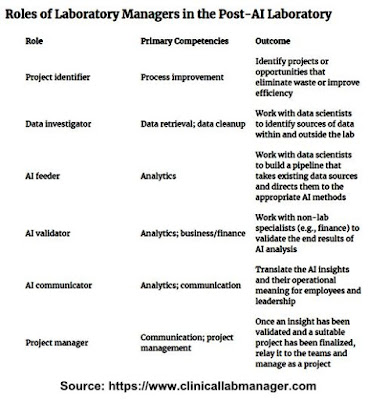Updated: 3 Sept. 2020 (Added to Learning Point)
August's blog will discuss the issue of artificial intelligence (AI) & 'big data' in medicine and health.
The idea for the blog was stimulated by a fascinating article in The Economist of June 13-19 as part of its Technology Quarterly: 'Driverless cars illustrate the limits of today's AI.' (Further Reading)
The blog's title derives from a 1968 ditty by the Beatles written by John Lennon
LIMITATIONS OF AI
According to The Economist article, the following are some of AI's current limitations that I've chosen to highlight. Yes they relate to self-driving cars but most have broad applicability relevant to medicine:1. Self-driving cars work similar to other applications of machine learning. Computers crunch huge piles of data to extract general rules, and in theory the more data, the better the systems perform.
But deep-learning is statistical, linking inputs to outputs in ways specified by training data. That leaves them unable to cope with “edge cases” unusual circumstances that are not common in those training data.
- You can imagine if this applies to driving cars how much it can apply to the complexities of human beings, their health, symptoms, medical needs, etc. Humans can cope with oddities much better than AI, which in some ways works with only half a brain.
2. Google’s “Translate” often does a decent job at translating between languages. But in 2018 researchers noticed that, when asked to translate 18 repetitions of the word “dog” into a language spoken in parts of Nigeria and Benin and back into English, it came up with the following hilarious translations:
- “Doomsday Clock is at three minutes to twelve. We are experiencing characters and dramatic developments in the world, which indicate that we are increasingly approaching the end times and Jesus’ return.”
- Fact: Google’s system doesn't understand language because concepts like verbs and nouns are alien. It's constructed using statistical rules linking strings of letters in one language with strings of letters in another and is baffled by questions a toddler would find trivial.
3. Richard Sutton, AI researcher at the University of Alberta and DeepMind, published “The Bitter Lesson” (Further Reading) arguing that AI history shows that attempts to build human understanding into computers rarely work. The “bitter lesson” is that “the actual contents of [human] minds are tremendously, irredeemably complex…They are not what should be built in [to machines].”
Christopher Manning of Stanford University’s AI Lab notes that biological brains learn from far richer data-sets than machines.
4. About Big Data, which makes AI possible, see 'Big Data in Healthcare' (Further Reading). The conclusion: 'While big data provides great potential for improving healthcare delivery, it is essential that we consider the individual, social and organizational contexts of data use when implementing big data solutions.' Personal note:
* The lead author is one of my UAlberta Med Lab Science 'kids'.
LEARNING POINT
AI has a long way to go before it can be safely used in self-driven cars. Despite the hype, AI has an even longer road to travel before it's as safe and reliable as human health care professionals. Feel free to disagree.
The entire Technical Quarterly in The Economist, June 13-19, 2020 deals with AI and its limits. As its many proponents hype AI and Big Data, it's prudent to show their limitations too. Included articles:
- Reality check: After yrs of hype,an understanding of AI's limitations is beginning to set in
- Data - Not So Big: Data can be scarcer than you think and full of traps
- Brain Scan | An AI for an eye: Pioneering ophthalmologist highlights the potential, and the pitfalls, of medical AI
- Computing Hardware | Machine Learning: The cost of training machines is becoming a problem
- Road Block: Driverless cars illustrate the limits of today's AI
- The Future | Autumn is coming: As AI's limits become apparent, humans will add more
Note: If you don't subscribe to The Economist, perhaps take a trial one? Or check if your hospital is affiliated with a university, college (or perhaps the public library) has it available.
As always, comments are most welcome. And there are some.
FOR FUN
I chose this song because pretty much everyone has hopped on Big Data and AI bandwagons as if they're a revolution that's going to sweep traditional medicine aside. Maybe but I suspect not for years.
- Revolution (by the Beatles)
FURTHER READING
Driverless cars illustrate the limits of today's AI - They, and many other such systems, still struggle to handle the unexpected (The Economist, June 13-19, 2020)
Prior AI blog (30 Nov. 2019): I can see clearly now (Musings on using artificial intelligence in transfusion medicine)
The Bitter Lesson by Rich Sutton (19 Mar. 2019)
Rich Sutton, University of Alberta | Also see this bio
Kuziemsky CE, Monkman H, Petersen C, et al. Big Data in Healthcare - Defining the digital persona through user contexts from the micro to the macro. Contribution of the IMIA Organizational and Social Issues WG. Yearb Med Inform. 2014;9(1):82-9. Published 2014 Aug 15.

